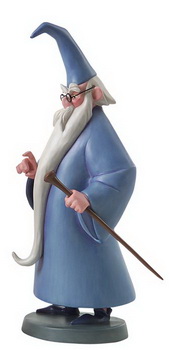I idolized the American medical establishment. When I was a mere Blue Cross number-collecting lackey working at the front desk of the Emergency Room of Massachusetts General Hospital, I sometimes saw, slipping into the doctors’ lounge, notable people — doctors whose surname in footnotes graced the basic core medical textbooks I was using as parallel reading in France, to prepare myself for my American examinations in medicine. I never wanted to penetrate more than the lowest echelons of the American medical establishment when I returned from France. I mean I doubted the Harvard-types would open their world to me easily, no matter how clever I was. I proved to be right. At a Harvard-associated residency program, I was actually asked at the interview if anyone in my family was a Harvard University trained physician. I still remember the program chairman’s barely muffled laughter when I told him my father held a graduate degree from the Harvard University School of music. Read more on Drug Misuse in American Medicine Leads to Possible Catastrophe…
Filed under Doctors, medicine, News, prescription drugs by on May 23rd, 2016. Comment. ![]()
In the National World War II museum, it is easy and even triumphant and pride-generating to look back and see some of the scientific advances made during World War II. There’s no doubt that science is advancing. But I wonder if our ethics can keep pace.
I am fairly proud of Teflon. And synthetic cortisone is widely used and may have saved plenty of lives. It’s a steroid that knocks down the action of the immune system. When a medical substance becomes cheaper and easier to use and known to the public, then it runs a real danger of getting overused. Most concern about overuse is focused on illegal steroids taken by athletes. Nevertheless, everything that can be helpful and fast may make things worse. One example would be the over-prescribing of steroids to kids with allergies.
Penicillin had been invented before WWII, but its use did not become widespread until WWII. Of course, it took people awhile to find out about the ability of bacteria to develop resistances to antibiotics. This has led to newer and stronger antibiotics, which would not be the worst thing in the world. Unfortunately, the excessive use of antibiotics has led to untreatable infections, such as methicilline-resistant strep and an untreatable strain of tuberculosis. Read more on Science and War (and Ethics)…
Filed under medicine, News, prescription drugs, Research, Science by on Oct 14th, 2012. Comment. ![]()
On A Cat Aging
by Sir Alexander Gray
He blinks upon the hearth-rug
And yawns in deep content,
Accepting all the comforts
That Providence has sent.Louder he purrs and louder,
In one glad hymn of praise
For all the night’s adventures,
For quiet, restful days.Life will go on forever,
With all that cat can wish;
Warmth, and the glad procession
Of fish and milk and fish.Only – the thought disturbs him –
He’s noticed once or twice,
That times are somehow breeding
A nimbler race of mice.
I loved Merlin – King Arthur’s court wizard — when I was a kid and that was just about the time that Disney came out with “The Sword in the Stone.”
WOW – nearly 50 years ago!
Later I was to love the Arthurian legend in many deep and symbolic ways — love it so much that for a long time I kept a light-up, plug-in sword which was (actually, fairly easily) removed from a plastic pseudo-crystalline rainbow light-shooting stone. Doing so didn’t make me a queen of anything, though.
It is almost impossible, I think, to be human and anything more than partially literate without knowing the splendor of the Arthurian legend.
Fast forward to the present, and I am a wizard in my own way – a doctor. I wanted every patient to have the smiling sense of the Arthurian splendor that I had when I pulled that ersatz sword from the ersatz stone. Most of them did, until that piece, like many dear to me, was lost in a series of moves.
Filed under Aging by on Mar 9th, 2011. 1 Comment. ![]()
